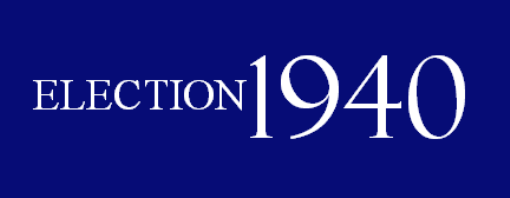The Pittsburgh Press (November 4, 1940)

BAD YEAR FOR GUESSING
By Kermit McFarland
This election Tuesday probably will make a lot of people feel silly.
The professional politicians, the prophets of doom, the expert analysts, the poll-makers, the curbstone guessers and the surveyors like the above-signed are not at all unlikely to experience humiliation extraordinary by Wednesday morning.
The pro politicos solemnly consult all their ward oracles, add and subtract and tell you how the election will turn. The prophets of doom tell you the world will go to pot if “that man” gets in and that it would be impossible for any other result to develop.
The experts exert in their most mysterious and pontifical ways and the poll-makers frantically try to solve sudden turns in poll results and tack off their scientific course to meet unexpected circumstances. The curb-stoners see convincing signs in the breezes, the feel of their bones or in their pipe smoke.
Surveyors weigh this and weigh that, discount one politico’s word against another, judge the talk, the silence, the crowds, the lack of crowds and a hundred other factors in trying to arrive at a reasonable forecast.
But this is a different election. The methods of sizing up voting strength which were practiced last year are no good this year. No orthodox brand of snooping which worked in other elections necessarily will work in this one.
Never has there been an election when there were so many cross-currents of sentiment swinging through public opinion. Never has there been an election when the voters were so slow to make known their presidential preferences willy-nilly to whomever would listen. Never have there been so many families divided among themselves over the rival candidates, so many business partners and associates split in their politics.
Seldom in an important presidential election have there been so many factored which produced a clash of selfish interests within a single soul. The economic benefits of the New Deal sway a workingman one way and the draft may sway him the other, as examples.
There seems to be no doubt of it, a larger number of voters have followed the campaign tactics of the two principal candidates with open minds. There has been more changing of minds.
The European war, the Japanese threat, the first peacetime selective military service, the huge defense program suddenly pinned on the taxpayers’ pocketbooks – these things have made voters restive and uncertain.
It is doubtful if there ever was an election when so many voters, whichever way they finally mark their ballots, at the same time will be wondering in the back of their minds if they are doing the right thing.
The presidential candidates themselves have contributed to this unusual situation. Neither respects precedent. Each is more likely to follow his own snap judgment than the deliberate advice id an inner circle of politicians. Each has devised and revised his campaign tactics to meet circumstances of the moment as they rose.
Ardent New Dealers of the past have become arch critics of the present New Deal. The President has put Republicans in his cabinet.
Not all big businessmen are against Mr. Roosevelt and he has support in some surprising corporation quarters. Not all wage-earners are against Mr. Willkie and he has drawn some enthusiastic backing from many such persons.
In many ways, the campaign is a class against class contest, but each class has notable defections.
John L. Lewis, boss CIO man, endorses Mr. Willkie and bitterly assails Mr. Roosevelt. Other CIO leaders stay by the President. AFL rank and file in many spots were incensed at the Lewis “bolt” to Mr. Willkie and suddenly dropped their indifferent support of Mr. Roosevelt and pitched into the fight.
All these things have created an amazing conflict and crossfire of opinion, not only within cross-sections of voters, but within single groups and even within the minds of individual voters.
There is no fool-proof system of gauging this state of affairs with any confidence. So the election guessers can only analyze what they see and hear and take a wild plunge at what they can’t see or hear.